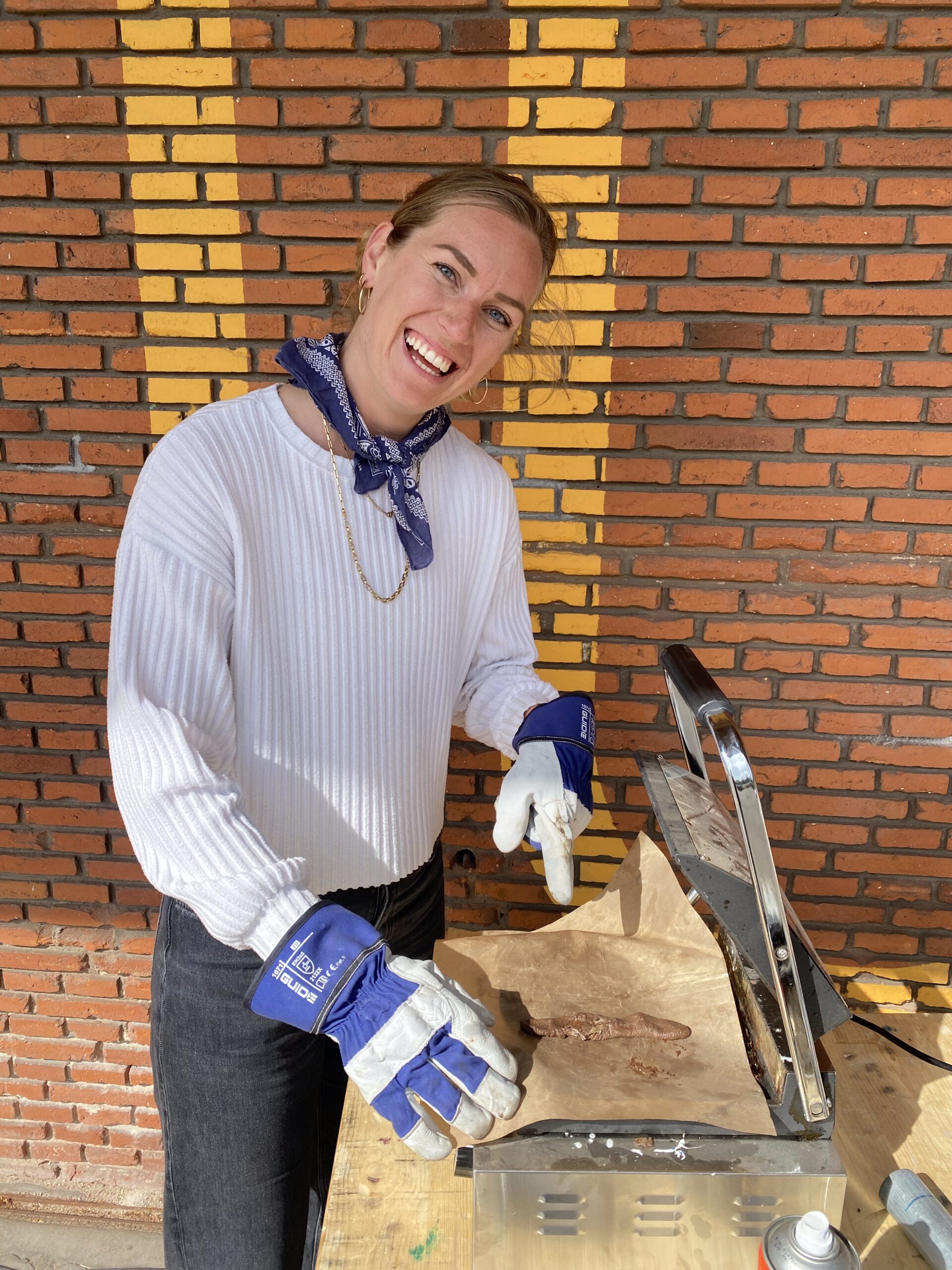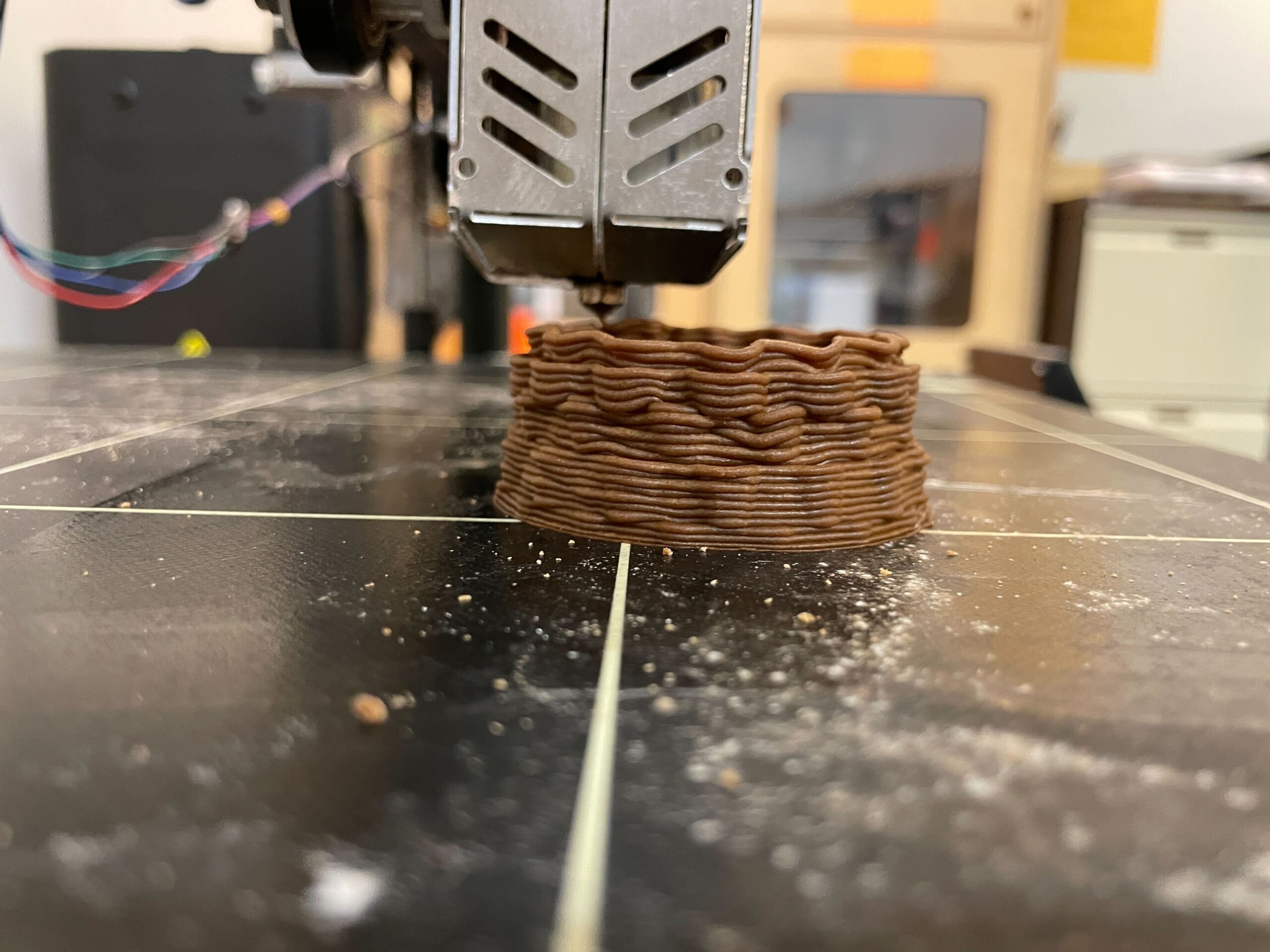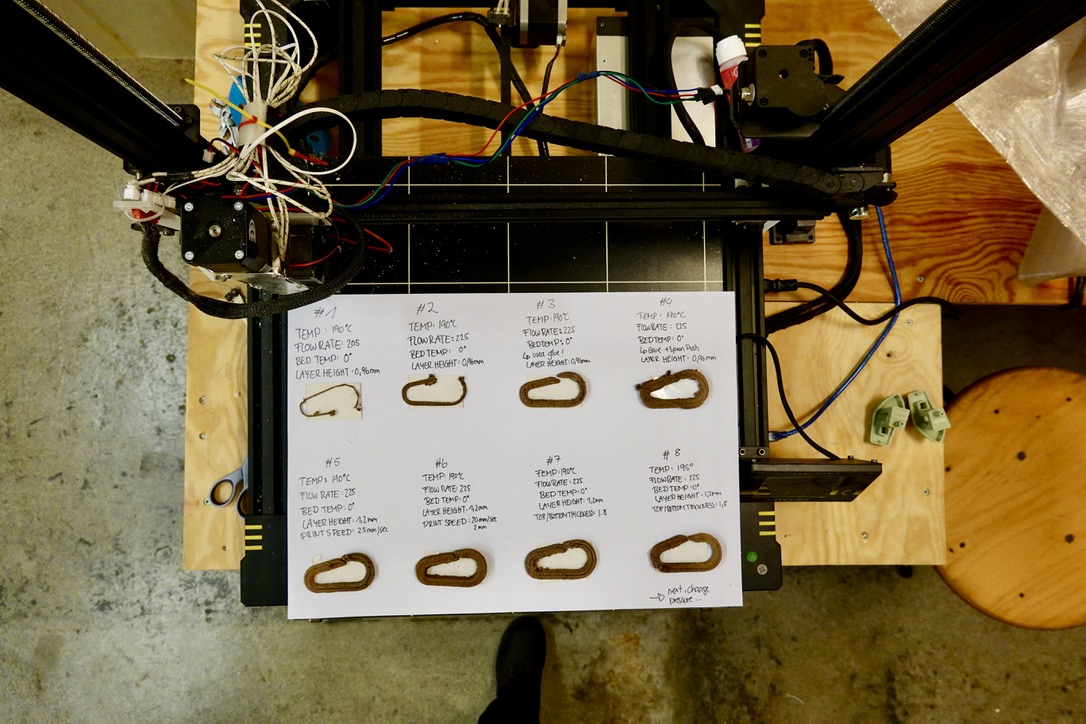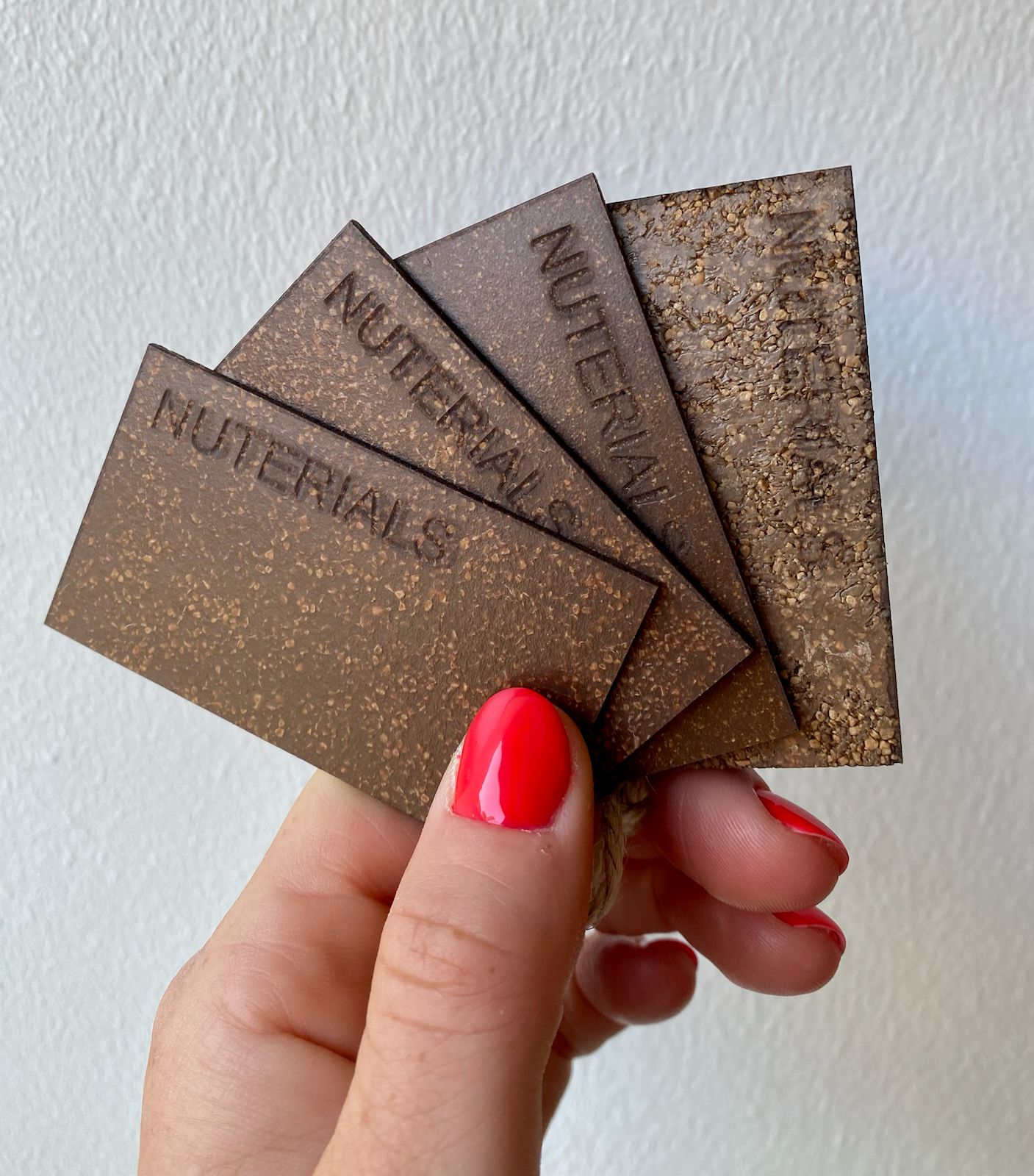Going nuts for circularity: Nuterials’ journey in the Distributed Design Residency 2024
As part of the Distributed Design Residency Programme 2024 at Maker, Nuterials – a Danish startup turning waste nut shells into biodegradable bio-composites – had the opportunity to test and refine their material across various production methods and for different applications. Founded by Carla and Maren, Nuterials is dedicated to providing sustainable alternatives to traditional plastics for industries such as injection molding, 3D printing, and thermoforming.
Exploring Material Potential in a Maker Environment
Maker provided Nuterials with access to specialized equipment for extrusion, thermoforming, and additive manufacturing, enabling the team to push the boundaries of their material’s performance. These hands-on experiments revealed valuable insights into how Nuterials’ bio-composites behave under different processing conditions.
“Being able to test our material in real production setups was invaluable,” explains Maren Bohl. “We discovered how it performs under heat, pressure, and various fabrication techniques, which is crucial for optimizing it for industrial applications.”
Beyond technical testing, the residency provided an opportunity to engage with and learn from local experts, designers, and fellow material innovators. These exchanges helped shape Nuterials’ approach to business strategy and product development, reinforcing the need for practical, scalable sustainability solutions. Nuterials collaborated with Antonio Esparza (former Distributed Design resident and PhD in industrial 3D print) on developing a bio plaster from walnut shells and bio resin used in 3D printing.
“Meeting other founders who have successfully scaled bio-based materials was incredibly inspiring,” Carla Grünnewig explains. “It gave us perspective on the challenges ahead and how to navigate them while staying true to our vision.”

Distributed Design as an approach for circularity
Nuterials sees Distributed Design as a key approach for making circular materials more accessible. By collaborating with designers, makers, and decentralized manufacturing networks, the company aims to embed its materials into diverse, locally produced products. One such initiative is the Worm Tower project, developed in partnership with Jardines en el Aire (FabLab Sevilla). This project plans to apply Nuterials’ bio-composites to design functional, regenerative solutions for urban agriculture and soil health.
“For us, Distributed Design is about more than just production – it’s about connection,” says Maren. “By working with makers and fab labs worldwide, we can ensure our material is used in meaningful ways that contribute to a circular economy.”

Reflections & Future Directions
The residency at Maker reinforced Nuterials’ belief in collaborative innovation as a driving force for sustainable materials. The opportunity to test, learn, and network within a supportive, interdisciplinary environment provided a clearer roadmap for the company’s next steps.“We’re leaving this residency with a stronger understanding of our material, a growing network of potential collaborators, and a clearer vision for scaling Nuterials,” Carla reflects. “The experience reaffirmed our commitment to building sustainable materials that don’t just replace plastics—but redefine how materials are made and used.”
As Nuterials moves forward, the company continues to seek new partnerships, designers, and manufacturers interested in integrating bio-composites into innovative products. With a focus on scalability, collaboration, and practical sustainability, Nuterials is shaping a future where waste is not discarded—but transformed into a valuable resource.

About Nuterials
Nuterials is a Danish-based materials start-up specializing in circular bio-composites made from upcycled walnut shells. Their mission is to provide manufacturers with high-performance, biodegradable alternatives to traditional plastics, suitable for injection molding, 3D printing, and thermoforming. By combining functionality, aesthetics, and sustainability, Nuterials helps businesses reduce waste and lower CO₂ emissions while maintaining product quality. Focused on practical solutions for a circular economy, the company works closely with designers and manufacturers to integrate eco-friendly materials into diverse industries.
